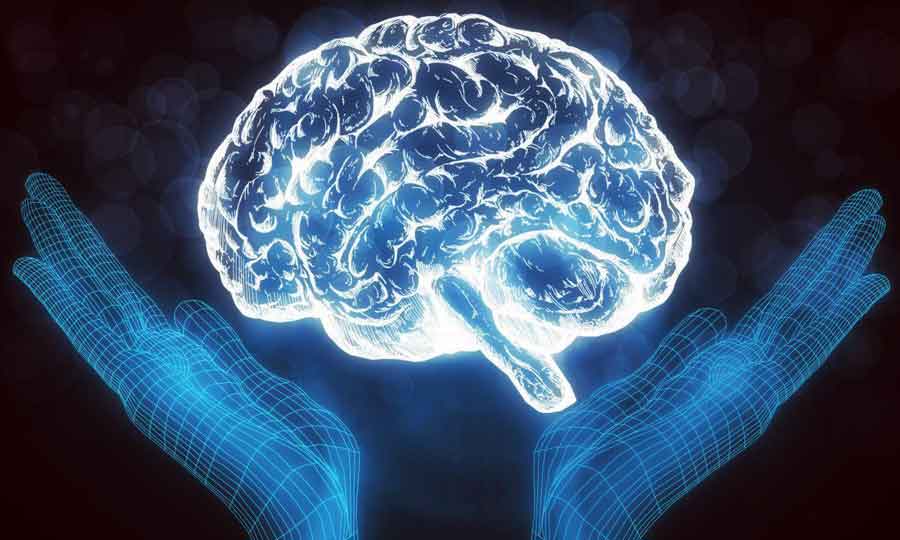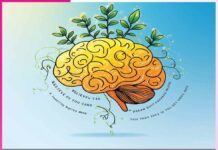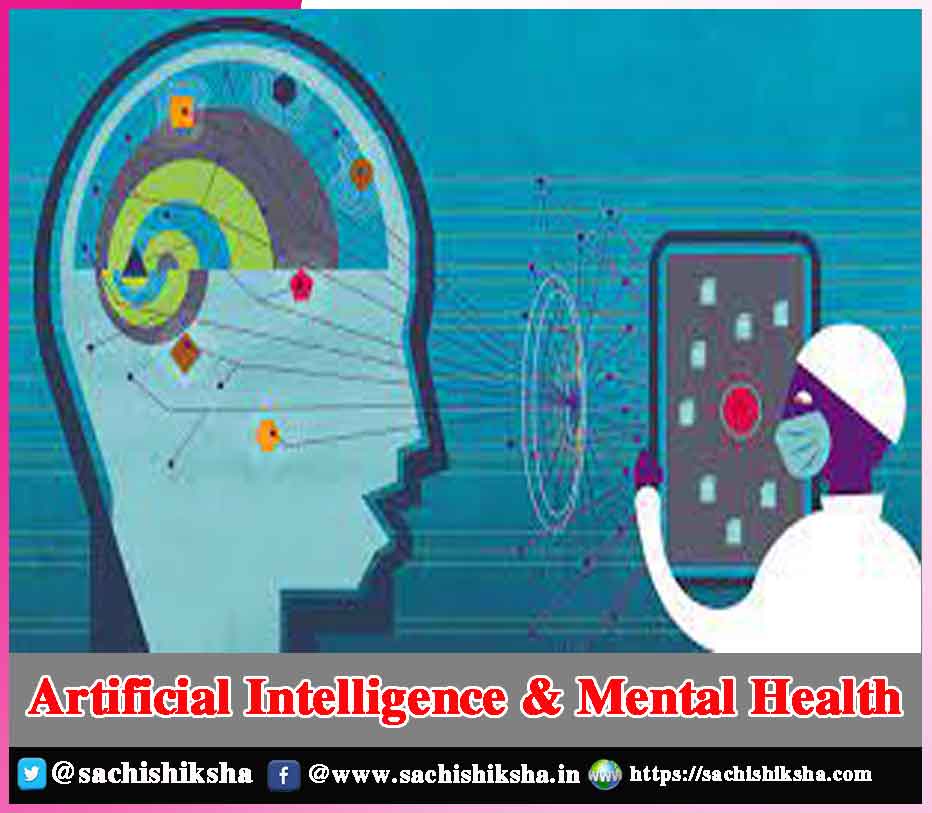Artificial Intelligence & Mental Health
Introduction: In every field, artificial intelligence is growing. The next phase in AI for people with mental disorders is about to begin. Furthermore, this artificial intelligence may be highly efficient at relieving your depression or anxiety symptoms.
Though AI will be unable to entirely replace traditional therapy in the not-too-distant future, the prospect for AI in mental healthcare is huge. We are currently experiencing a terrible mental health catastrophe. According to Mental Health America’s 2023 study, one-fifth of adults in the United States, or more than 50 million people, suffered a mental disorder in 2019-20.
Also Read:
- Physical and Mental Health with Moral Aptitude
- Effects of Positive Thinking on Physical & Mental Health
- World Health Day
- One Hour Daily for Your Health
- 5 Tips for Healthy Living: Healthy Lifestyle Facts – Simple & Actionable
- Effects of Mental Pollution: Prevention & Treatment
- Importance of Mental Health
Table of Contents
Feasibility of AI for Health Professionals:

AI is currently being utilized to aid in identifying illnesses, improve comprehension of disease development, optimize medication/treatment quantities, and discover innovative remedies. Quick pattern examination in enormous data sets is an important asset to AI.
AI in Clinical Work:
While AI technology has grown more common in medicine for health-related programs, it has been quicker to enter the field of mental health. In their clinical work, psychiatrists are more direct and client-centered than many non-psychiatric professionals, focusing on “kinder” abilities such as developing connections with patients and continually observing patient behaviors and feelings. Clinical data in mental health is frequently in the shape of qualitative and evaluative patient remarks and written records. However, AI technology has much to offer mental health practitioners.
Hike in Anxiety and Depressive Disorders:
Globally, mental health diseases are on increasing incidence. At least 10% of the population is afflicted, with about 15% of adolescents suffering from a mental health disorder, and suicide being the fourth greatest cause of mortality among those aged 15 to 29. Mental diseases are expected to cost the global economy over $16 trillion between 2010 and 2030 as a major cause of mortality and morbidity. Nobody appears to know why anxiety and depressive disorders are so prevalent anymore.
The growth is linked to a variety of variables, ranging from the rigors of contemporary life to the influence of the COVID-19 epidemic, which has exacerbated pre-existing mental health disorders. In fact, the percentage of adults undergoing inpatient or outpatient therapy or counseling in the United States has been continuously increasing over the previous two decades. At the precise same time, according to Mental Health America’s 2023 report, accessibility to treatment remains restricted. Almost 30 million adults in the United States do not receive treatment for a mental disease.
Opinions of Mental Health Practioners:
Unlike radiography and pathologists, where AI outperforms humans, mental healthcare is usually considered as a human-only field. Mental health practitioners are skeptical that artificial intelligence remedies for mental health would ever be able to deliver emotive care, which they think is essential.
Additional study on the use of AI for mental health therapy is undoubtedly needed, but the FDA (Food and Drug Administration) in the United States has already modified restrictions to allow for a greater use of digital therapies for people with mental health disorders.
Let us take an in-depth look at how AI technologies are being used in mental health services nowadays:
- Collecting information from Patients to Predict the Development of Mental Health Problems:
AI is being utilized to analyze electronic health records (together with blood tests and brain imaging), surveys, and recordings of voices, behavioral indications, and even data from a patient’s online social networking profiles.
Data scientists use methods such as overseen artificial intelligence, deep learning, and the processing of natural language to analyze patient data and identify mental and physical conditions that correspond to a specific mental health disorder, such as discomfort, frustration, wandering around the mind anxiety, or thoughts of committing suicide.
The scientists from IBM and the University of California recently examined 28 research papers on the application of artificial intelligence in mental health and concluded that, based on the AI technique used and the standard of training information, methods are capable of identifying a variety of mental disorders with 63-92% reliability.
- Undertaking Self-evaluation & Sessions With Therapists:
This area is dominated by keyword-triggered and NLP chatbots. They provide advice, monitor the user’s reactions, assess the evolution and extent of a mental disease, and assist in coping with its signs and symptoms – either by themselves or in collaboration with a qualified psychiatrist on one end of the digital line.
Woebot, Replika, Wysa, Ellie, Elomia, and Tess are among the most popular AI-powered online counselors. Tess, an artificial intelligence chatbots, for example, provides highly personalized therapy that utilizes CBT and other scientifically validated methods, as well as psychological instruction and health related reminders. Because the measures are carried out via a text-based discussion, emotion detection is entirely dependent on the processing of language.
- Providing Innovation to Counselors in order to Streamline Routine Tasks:
Because of the complexity of mental health issues, psychiatrists may rarely depend on old technology or the guidance of other physicians when analyzing health data and developing treatment strategies for sufferers.
Implementing AI-driven mental health sites that consequently get data from various IT systems within the hospital and produce on-demand notifications about each and every the individual’s progress, present situation, and possible results could be a means to reduce the administrative burden.
The Advantages of Utilizing AI in Mental Health Care:
Affordability:
Like conventional therapy, where sessions must be scheduled and travelled to, AI-based and other mental health applications enable consumers to obtain therapeutic treatment at any time and from any location. Furthermore, they offer assistance at no or little expense compared to the costs of in-person therapy, absences from work, having to organize other plans, and commuting.
Accessibility:
AI-powered apps eliminate hurdles to mental health care such as overall personnel shortages and a lack of therapists in remote regions. This is significant since over 100 million individuals in the United States reside in so-called Health Care Expert Poverty Zones.
Efficiency:
By analyzing behavioral messages, artificially intelligent devices for mental healthcare have been demonstrated to be effective at diagnosing indications of depressive disorders and post-traumatic stress disorder. Other researches have demonstrated that algorithms can detect behavioral indications of anxiety with over 90% accuracy and identify who amongst at-risk youth are likely to experience psychosis with 100% precision.
Challenges of Applying AI:
Among the greatest challenges of applying AI for mental healthcare is the possibility of bias in AI systems due to inadequate and low grade data. Another barrier to AI adoption is an absence of openness regarding the employment of computers and their decision-making reasoning, which can lead to skepticism.
Concerns have also been raised concerning security and confidentiality of data, as AI systems frequently require vast volumes of private patient information to work successfully. Lastly, incorporating AI technologies into preexisting healthcare systems can be challenging and time-consuming, especially when numerous doctors require education to use AI-based tools efficiently.
Conclusion:
Still, AI remains in its early stages, and we understand that we continue to strive to achieve excellence. There will undoubtedly be further advances as we go towards a future in which Artificial Intelligence can assist us in providing better mental health services to people in demand. The mental health problem must be solved, and AI can play a significant part in this.












































